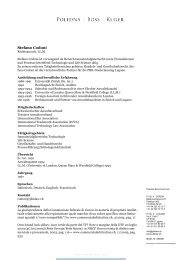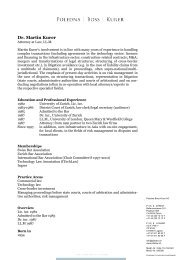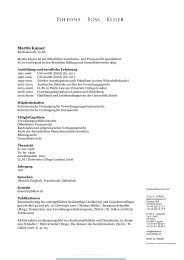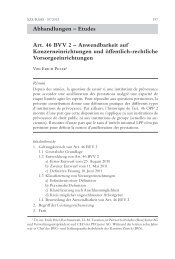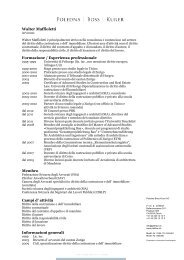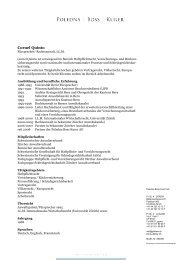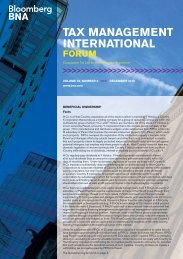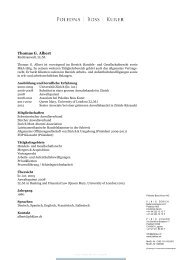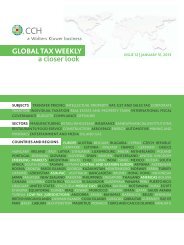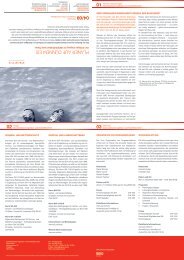721.8 kB - Poledna | Boss | Kurer
721.8 kB - Poledna | Boss | Kurer
721.8 kB - Poledna | Boss | Kurer
- No tags were found...
Create successful ePaper yourself
Turn your PDF publications into a flip-book with our unique Google optimized e-Paper software.
deduct VAT as a result of incomplete tax invoices,despite the fact that they later provided relevant information,and subsequently whether the MemberState must refund the VAT to the suppliers.Th e ECJ stated that the Belgian national lawgoes beyond what the EU law provides for therequirements of a tax invoice in order to benefitfrom the right to deduct VAT, but that it isfor the national courts to decide whether the lawmakes obtaining the benefit too difficult. It thenconcluded that although the taxpayer is permittedto correct any invoice errors before the taxauthority makes its decision regarding such errors,in the present case the information was providedonly after the authority had decided to refuseto allow the deduction of VAT, and EU lawdoes not prevent national law from denying thededuction in such an event.The ECJ then considered the matter of whether theVAT should be refunded with regard to the principleof fiscal neutrality, and found that:"The principle of fiscal neutrality does not precludethe tax authority from refusing to refund the valueadded tax paid by a company providing services, inthe case where the exercise of the right to deduct thevalue added tax levied on those services has beendenied to the companies receiving those services byreason of the irregularities confirmed in the invoicesissued by that service-providing company."The judgment was delivered on May 8, 2013.http://curia.europa.eu/juris/document/document.jsf?text=&docid=137304&pageIndex=0&doclang=EN&mode=lst&dir=&occ=first&part=1&cid=1867295European Court of Justice: Petroma Transports SA v.Belgium (C-271/12)BulgariaThe European Court of Justice was asked for a preliminaryruling regarding a taxpayer who had beenremoved from the VAT register while in possessionof a number of motor vehicles. The tax authoritiesassessed the amount of VAT due on the vehiclesbased on their 'open market value'; the taxpayer arguedin court that the assessment should take intoconsideration the depreciation in value of the vehiclesbetween when they were purchased and whenthe company was removed from the VAT register.Under national law the open market value, whichis interpreted as the purchase price of the assets, isrequired to assess the taxable amount; however thecourt asked the ECJ whether EU law is applicableto cases where an economic activity ends becauseof removal from the VAT register, whether nationallaw concerning the open market value of assets iscompatible with EU law, and whether it shouldtake depreciation into consideration.The ECJ first stated that the EU VAT Directivedoes apply when a taxable activity ceases due to thetaxpayer being removed from the VAT register, asthe law applies to the end of an activity withoutspecifying a necessary reason.93



